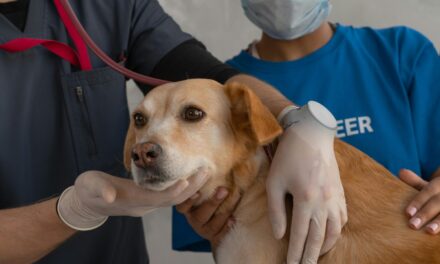Selecting the right dog breed often involves considering physical traits and personality. However, health considerations are equally important when choosing a dog.
Some breeds are more prone to genetic conditions and health issues than others, making their care more complex and potentially costly.
Simon Bennett, Managing Director at petGuard, emphasises the significance of understanding breed-specific vulnerabilities. “Some dogs are more prone to diseases, health problems, and illnesses than others. You may want to factor in your appetite for vet visits and which dog insurance to choose,” he advises.
Leading pet insurer petGuard has shared insights into some of the healthiest dog breeds as well as those prone to health challenges. These insights can guide potential dog owners in making an informed choice.
Some breeds stand out for their overall resilience and health. Australian Shepherds, Australian Cattle Dogs, Border Collies, Springer Spaniels, and Pinschers are known for their energy and longevity. Their active lifestyles and lower susceptibility to genetic diseases make them appealing choices for owners seeking robust canine companions. These breeds thrive with regular exercise and attentive care, often enjoying long, healthy lives.
Breeds Prone to Specific Health Challenges
In contrast, certain breeds face increased health risks due to genetic factors or selective breeding practices.
Flat-faced breeds like Pugs and Bulldogs often experience respiratory issues due to their short snouts. Pugs, in particular, may also develop eye problems because of their prominent, bulbous eyes, requiring careful cleaning and regular monitoring.
German Shepherds and Chow Chows are more likely to suffer from hip dysplasia, a condition that affects their mobility. Chows are especially vulnerable as their size can strain their hips and joints.
Boxers are another breed requiring close attention. They are prone to heart conditions such as Aortic Stenosis and Cardiomyopathy. Symptoms like fatigue, loss of appetite, or difficulty breathing warrant immediate veterinary care.
Labradors, while popular for their friendly nature, are at risk of obesity. Their love for food means owners must manage their diet carefully to avoid weight-related health issues. Labradors are also susceptible to hip and elbow dysplasia, further emphasising the need for a healthy lifestyle.
The Role of Ownership in a Dog’s Health
Simon Bennett underscores the critical role of responsible ownership in a dog’s wellbeing. “The health of a dog will depend mostly on their owner – how often you take them to the vet, exercise them, train them, and what you feed them,” he says. While some breeds may have genetic predispositions, consistent care, a balanced diet, and regular vet visits are essential to ensuring a dog’s long-term health.
Future dog owners are encouraged to research thoroughly and consider not only the breed’s personality and compatibility but also its health needs. By doing so, they can make choices that align with their lifestyle and ability to provide the care required for a happy, healthy pet.








